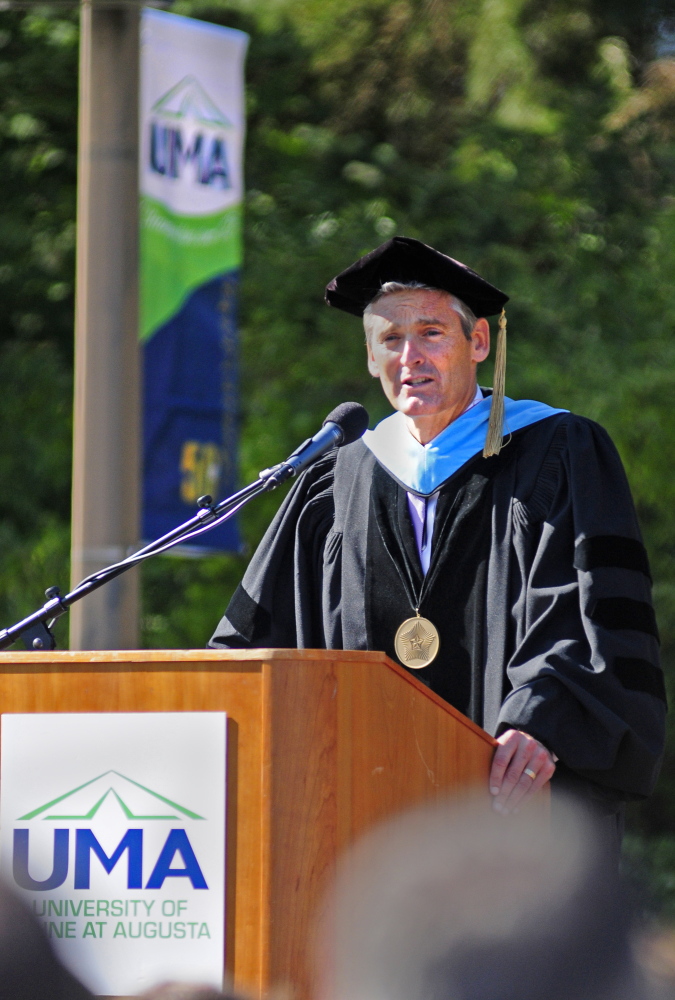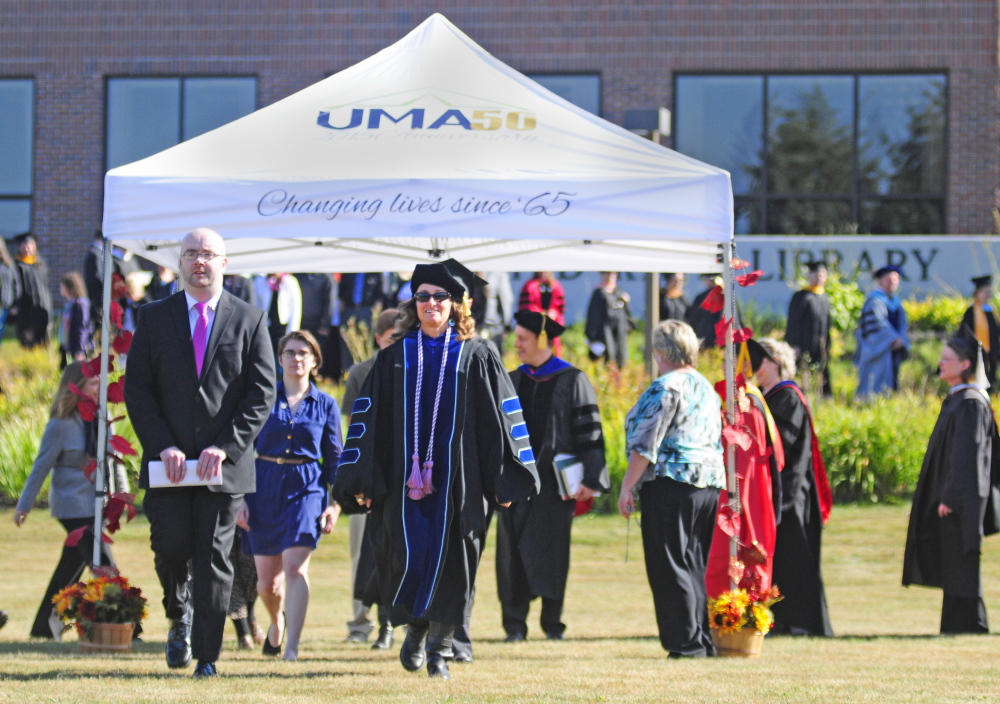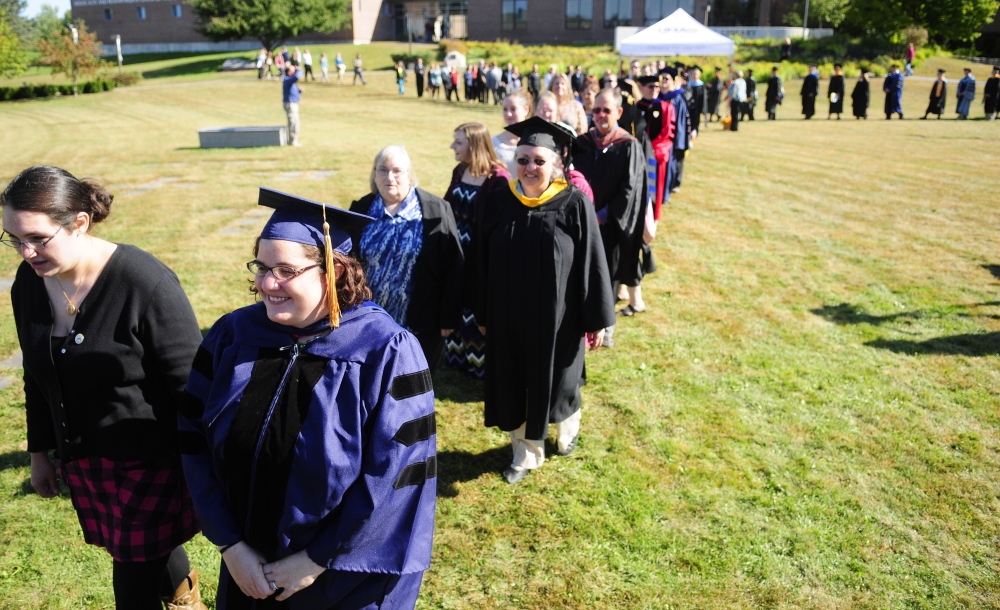AUGUSTA — The recently appointed interim president at the University of Maine at Augusta, Glenn Cummings, told those attending Friday’s convocation to think of the early 17th-century Spanish novel “Don Quixote” when considering UMA’s theme of innovation this academic year.
The novel, by Miguel de Cervantes, follows the idealistic Alonso Quixano, who believes he is a chivalrous knight, and Sancho Panza, a farmer who serves as Quixano’s squire.
Cummings, whose first day at UMA was Sept. 9, said the mix of the two characters’ idealism and a commitment to pragmatism and realism is the best way to approach innovation. You need to be both idealistic and understand how life works, Cummings told the audience of faculty, staff, students and community members during the ceremony on the university’s campus lawn.
“Today as we go forward at UMA to introduce scholars and thinkers around the theme of innovation, I ask us to keep in mind how we continue ‘Don Quixote’s’ idealism about the world – sometimes foolish idealism – but also the belief that we can make a difference and, at the same time, keep our feet on the ground to know what the world really needs,” Cummings said.
Convocation, with a formal procession and recession of administrators, faculty and honored students, is UMA’s annual event launching the year’s academic theme and recognizing some students and faculty members.
The university honored about 100 Rising Scholars, students nominated by faculty and staff for their achievements or potential, along with Terry Colby, a nursing professor named this year’s Distinguished Educator, and Sarah Hentges, an assistance professor of American studies named the Distinguished Scholar.
The event’s keynote speaker, Peter Schilling, associate vice president in global technology services at New York University, spoke about innovation in higher education and gave examples of how different tools can affect teaching and learning.
Schilling said people have barely scratched the surface.
“We need to be diligent and directive when it comes to innovation. If we don’t pay attention, we can get it wrong, and I’d rather not,” he said.
UMA, unlike long-standing schools such as Harvard University and Princeton, is the type of institution that can break new ground and think outside the box, Schilling said. Universities that reward faculty members for their research work more than their instruction can make innovation in classrooms difficult, he said.
Schilling said students are coming to universities with different skills and are processing information in different ways, and educators need to find ways to accommodate that. He told students to be patient with professors who are trying to innovate.
“I think, given all that UMaine Augusta is already doing, how dynamic you all are, I think this is an ideal place to be to try to reach your goals,” Schilling said.
Cummings, most recently president and executive director of Good Will-Hinckley and a former speaker of the Maine House, replaced Allyson Handley, who left for a job at National University in San Diego after six years at UMA.
Cummings is expected to serve in the post for about a year.
Send questions/comments to the editors.





Success. Please wait for the page to reload. If the page does not reload within 5 seconds, please refresh the page.
Enter your email and password to access comments.
Hi, to comment on stories you must . This profile is in addition to your subscription and website login.
Already have a commenting profile? .
Invalid username/password.
Please check your email to confirm and complete your registration.
Only subscribers are eligible to post comments. Please subscribe or login first for digital access. Here’s why.
Use the form below to reset your password. When you've submitted your account email, we will send an email with a reset code.